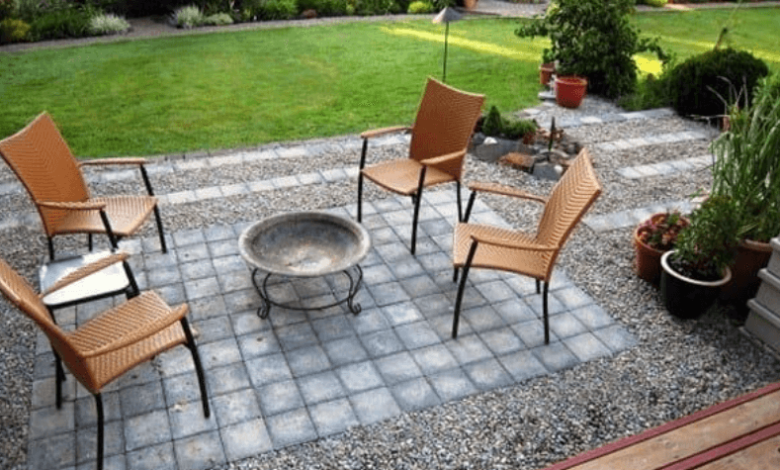Gravilla para Patio: A Stylish and Functional Outdoor Solution

When designing an outdoor space, whether for a backyard, garden, or terrace, materials matter. One of the most popular and cost-effective choices among homeowners and landscapers is gravilla para patio or patio gravel. This material offers a beautiful, low-maintenance solution that works for various designs and climates. Whether you’re renovating a small corner or transforming your entire yard, gravilla can be both an aesthetic and practical choice.
What Is Gravilla para Patio?
Gravilla para patio is small crushed stone or gravel used in landscaping to create patios, paths, or decorative areas. It comes in different colors, textures, and sizes, allowing for a wide range of designs. Typically, gravilla is made from natural stones such as granite, limestone, or river rock. It is selected not only for its beauty but also for its durability and drainage properties.
Benefits of Using Gravilla
There are many reasons to consider using gravilla for your patio design:
Affordable Material
Compared to concrete pavers, tiles, or wooden decks, gravilla is more affordable. It requires fewer tools and less labor, making it budget-friendly even for DIY enthusiasts.
Excellent Drainage
One of the top reasons homeowners choose gravel is its natural ability to drain water. Unlike paved patios, gravilla allows rain to seep into the ground, reducing puddles and helping prevent water damage.
Easy Installation
With basic planning, a shovel, rake, and wheelbarrow, anyone can install a gravel patio in a weekend.
Low Maintenance
Gravel patios are generally low-maintenance. You may occasionally need to rake the surface, add more gravilla over time, or weed the area, but compared to wooden decks or tiled surfaces, upkeep is minimal.
Aesthetic Flexibility
With a variety of colors, shapes, and sizes, gravilla can match any aesthetic—from rustic gardens to modern, minimalist patios.
See also: How to Choose the Perfect Recliner Sofa for Comfort and Style in Pakistan
Choosing the Right Type of Gravilla
Not all gravel is created equal. Choosing the right type of gravilla para patio will influence the look and function of your outdoor space.
Crushed Stone Gravel
It is ideal for pathways and patios with frequent foot traffic.
Pea Gravel
Rounded and smooth, pea gravel is visually appealing and comfortable to walk on. However, it tends to shift more easily, which may not be ideal for furniture-heavy areas.
Decomposed Granite
Decomposed granite offers a finer texture and compacts well, creating a semi-solid surface. It’s a popular choice for patios that need a firm base.
Design Ideas Using Gravilla para Patio
There are countless ways to incorporate gravilla into your patio design.
Zen Garden
Combine fine gravilla with large stones and a few plants to create a peaceful Zen-inspired outdoor area. Rake patterns into the gravel for a calming, meditative effect.
Modern Minimalism
Use dark gray or black gravilla for a sleek, modern design. Pair it with geometric planters, outdoor furniture, and accent lighting to create a sophisticated look.
Rustic Pathways
Gravilla pairs beautifully with wood and brick. Create winding gravel paths with wooden borders or old bricks to enhance the rustic charm of your yard.
Fire Pit Area
It’s a cost-effective way to make your backyard cozier and more functional.
Installation Tips
While installation is fairly straightforward, proper preparation ensures your gravilla patio lasts for years.
Step 1: Plan Your Area
Mark out the shape and size of your patio. Consider sunlight exposure, water drainage, and furniture placement.
Step 2: Excavate the Ground
Dig down at least 3-4 inches to make room for the gravel. Remove any weeds, roots, or debris from the area.
Step 3: Lay Landscape Fabric
Add a layer of landscape fabric to prevent weed growth and separate the gravilla from the soil.
Step 4: Add a Base Layer
Before pouring the final gravilla, add a compactable base layer, such as crushed stone. This adds stability and helps with drainage.
Step 5: Pour and Rake the Gravilla
Spread the gravilla evenly over the area and use a metal rake to level it. Aim for a depth of 2-3 inches for most patio applications.
Maintenance Guidelines
To keep your gravilla para patio looking great:
- Rake Regularly: Smooth out uneven spots caused by foot traffic.
- Top Up as Needed: Over time, gravel may sink or scatter. Add more when needed.
- Control Weeds: Use natural weed killer or manually pull them out.
- Edge Your Patio: Use bricks, wood, or metal edging to keep gravel contained.
Environmental Advantages
Gravilla is not just functional—it’s also eco-friendly. Because it promotes natural water infiltration, it reduces runoff and minimizes the risk of erosion.
Common Mistakes to Avoid
- Skipping the Base Layer: This leads to an unstable surface and poor drainage.
- Choose based on the use and design.
- Ignoring Edging: Without proper borders, gravel will spread over time.
- Neglecting Weed Barriers: This makes your patio harder to maintain in the long run.
Where to Buy Gravilla para Patio
Many sellers offer bulk delivery, which is ideal for large projects. Always check the type, size, and color before ordering to ensure it fits your design vision.
Final Thoughts
Using gravilla para patio is one of the most practical and visually appealing decisions for any outdoor space. With its affordability, ease of installation, and eco-friendly benefits, it’s no surprise that gravilla is a top choice for homeowners and designers alike. Whether you’re aiming for a rustic retreat or a modern escape, gravilla can help bring your patio dreams to life.
